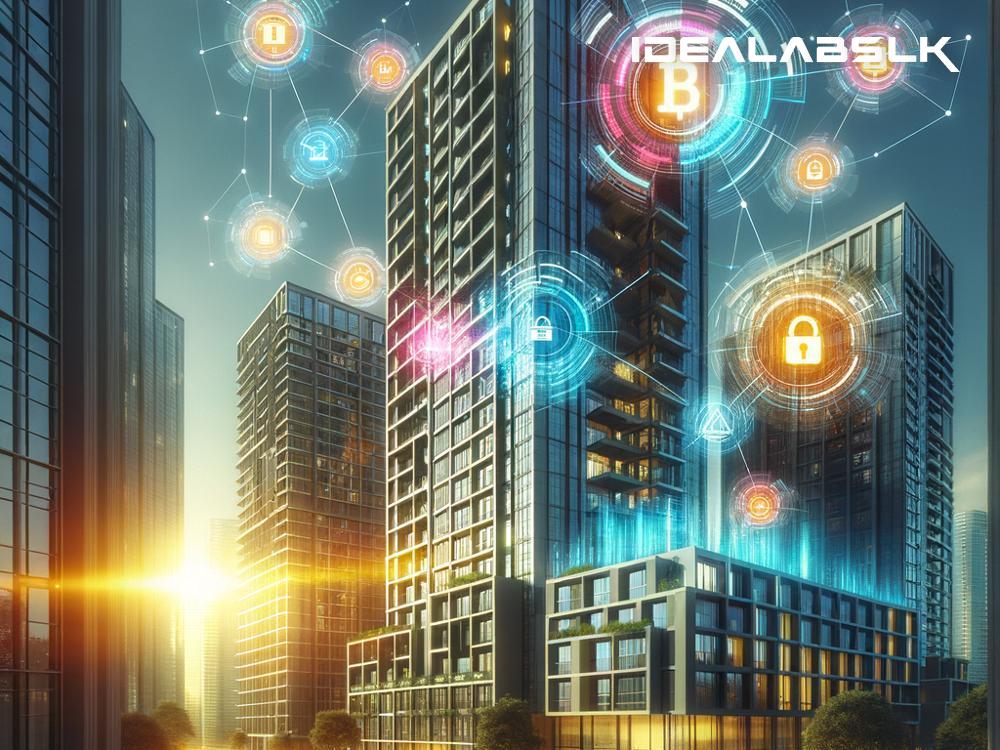Embarking on the Future: How Blockchain Revolutionizes Property Management Automation
In the ever-evolving realm of property management, staying abreast of technological advancements is not just a mere advantage but a necessity. Among the myriad of technological leaps, blockchain technology stands out as a game-changer, offering a seismic shift in how property management operations are conducted. Let's dive into the transformative power of blockchain in property management automation, understanding its impact in a simple yet comprehensive manner.
Understanding Blockchain in Layman's Terms
To begin with, blockchain might seem like a complex term, conjuring images of intricate codes and baffling jargon. Yet, at its core, it's a relatively straightforward concept. Imagine a digital ledger that is shared among a network of computers. This ledger meticulously records transactions or agreements in a way that is secure, transparent, and impossible to tamper with. Each "block" of information is chained to the previous one, creating a transparent and unchangeable sequence. This feature makes blockchain a remarkably reliable technology for various applications, including property management.
The Revolution in Property Management Automation
Property management, encompassing a wide array of tasks from handling lease agreements to managing property maintenance, demands both precision and reliability. Here's where blockchain technology promises to shine, by introducing automation and security like never before.
1. Streamlined Lease Processes
Lease agreements are the backbone of property management, yet they often involve cumbersome paperwork and time-consuming verification processes. Blockchain can automate and secure these transactions through smart contracts. These are self-executing contracts where the terms are directly written into code. When conditions are met, such as the tenant paying the rent, the agreement automatically enforces itself. This cuts down the need for intermediaries, reduces the potential for disputes, and accelerates the entire process.
2. Enhanced Security and Transparency
One of the most pressing challenges in property management is ensuring the security of transactions and maintaining transparency between all parties involved. Blockchain's inherent nature of being immutable and transparent addresses this issue head-on. Every transaction is recorded and can be traced back, reducing the risk of fraud and unauthorized alterations. This builds a foundation of trust, as every stakeholder has access to an unalterable history of transactions and property data.
3. Efficient Property Maintenance and Management
Blockchain can significantly streamline property maintenance and management. By utilizing IoT (Internet of Things) devices in conjunction with blockchain, property managers can automate many tasks. For instance, IoT sensors can track the condition of a property, and upon detecting issues, blockchain-based smart contracts can automatically trigger and document the hiring of a service provider for repairs. This not only ensures timely maintenance but also creates a transparent record of services rendered and payments made.
4. Simplified Payments and Financial Management
Handling rent payments, security deposits, and other financial transactions is a major aspect of property management. Blockchain enables these transactions to be executed swiftly and securely through cryptocurrencies or tokenized assets. This eliminates the need for traditional banking methods, reducing transaction times and costs. Moreover, the automated and verifiable record-keeping aspect of blockchain simplifies financial management and auditing processes.
5. Democratizing Real Estate Investments
Lastly, blockchain technology is breaking down barriers to real estate investment, making it accessible to a wider audience. Through tokenization, property ownership can be divided into tokens represented on the blockchain, allowing individuals to invest in property with much smaller capital. This not only opens up new investment opportunities for individuals but also provides property owners with a novel way to raise funds.
Looking Ahead
The integration of blockchain in property management automation is still in its embryonic stage, yet its potential is undeniable. It promises to solve age-old industry challenges, such as inefficiencies, lack of transparency, and security concerns, heralding a new era of streamlined and transparent property management.
As we stand on the cusp of this technological revolution, it’s essential for property managers and stakeholders to not only understand but embrace the possibilities that blockchain offers. The journey might seem daunting at first, but the destination—a more efficient, secure, and transparent property management ecosystem—is well worth it.
In conclusion, blockchain technology is not just another buzzword. It's a powerful tool that can significantly impact and transform the property management industry. By bringing automation, security, and efficiency to the table, blockchain is undoubtedly paving the way for a smarter and more reliable future in property management.

